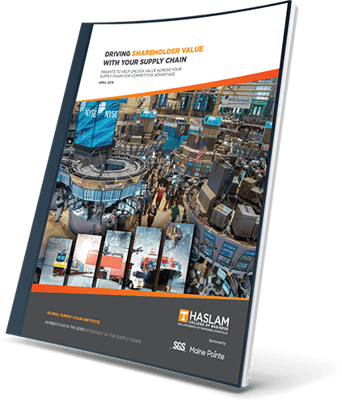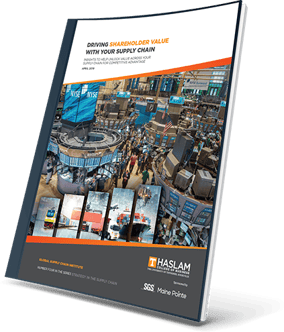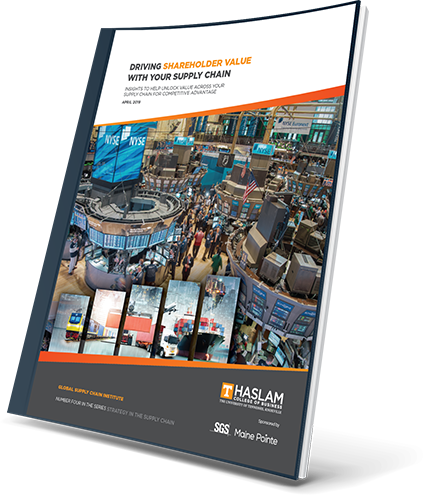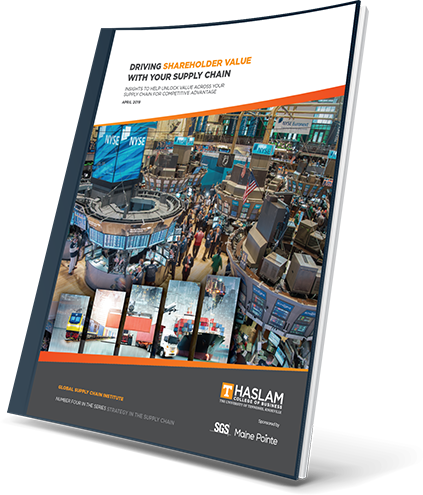
Driving Shareholder Value with Your Supply Chain
Produced by the Global Supply Chain Institute, University of Tennessee and sponsored by Maine Pointe, this research white paper shows the inextricable link between shareholder value and supply chain performance.
The paper is a very practical reference document for senior executives and PE partners on how to drive shareholder value through end-to-end supply chain excellence.
eBook: Driving Shareholder Value with Your Supply Chain


What's in this eBook?
Highlights success factors that will help organizations drive the TVO triple effect of reducing cost, releasing cash and enabling growth through end-to-end supply chain optimization
Features insights on what financial analysts look for and includes a case study showing how an organization was able to add $600 million of cash flow through supply chain optimization
Introduction
Whether you work for a publicly traded company or a private firm, the value of your company is reflected in either the public share price of your firm’s stock or the private valuation of the organization. But why should you care about shareholder value?
- You may own some of the company’s stock, and/or have stock options.
- Shareholder value, as we’ll show in this paper, is a measure over the long run of the financial health and long-range prospects for your firm and therefore your career with that firm
- Shareholder value is the language of the CEO and the Board of Directors. If you expect to be relevant as a supply chain professional, you have to speak that language and show how your actions drive shareholder value. And, as we’ll show later, shareholder value is inextricably linked to supply chain performance.
Chances are, if you have picked up this white paper, you do care about shareholder value and are curious about the topic. Perhaps it is because you feel that your supply chain is not delivering excellence, or that it could deliver more; that it could be an indispensable tool used by the CEO and the board of directors to propel your firm to a new level of performance. At a minimum, your company may be looking for ways to unlock capital as an alternative to equity and debt, and your supply chain can be just the lever to do that.
Driving Shareholder Value with Your Supply Chain

